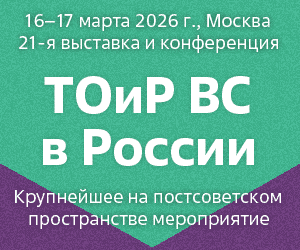ACTM given go-ahead
The spring of 2009 may go down in history as a pivotal period for Russia’s manned space program. In early April, the Roskosmos Federal Space Agency named the Korolev-based Energia Rocket and Space Corporation as the winner in its tender to develop a new spacecraft, known as the Advanced Crew Vehicle (ACV). Under the request for proposals (RFP), the bidders were to present their concepts of vehicles that would be in no way inferior to "equivalent foreign-built space transportation systems". It is perhaps the first time a request for the global competitiveness of a Russian space vehicle has actually been spelled out.
The ACV is seen as part of Roskosmos’ future Advanced Crew Transportation System (ACTS), which will also include a launcher and ground infrastructure. The recoverable crew vehicle will come in several versions. The baseline version will be able to carry six crew and 500 kg payload to low-Earth orbit and back. The Lunar version is for delivering four crew and 100 kg payload to near-Lunar orbit and back. There may also be several specialized ACV versions for such applications as autonomous near-Earth expeditions lasting up to one month, crew rotation and supply missions to low-Earth orbit, and space tourism flights. Another vehicle being proposed is an unmanned resupply craft for orbital stations.
The ACV must ensure a safe and smooth atmospheric re-entry, including in emergencies. Its design on-orbit time is one year docked to a near-Earth orbital station and at least 200 days docked to a near-Lunar station. The probability of crew loss during a near-Earth orbit mission should not exceed 0.995, or five instances out of 1,000 flights. The conceptual design must be submitted by June 2010.
Energia vs. Khrunichev
Neither the announcement of the tender nor its outcome came as a surprise to the Russian space community. Roskosmos first revealed its decision to hold an ACV contest in the summer of 2006, after Energia’s Kliper winged reusable spacecraft lost the agency’s tender for a new manned transportation system. That tender was subsequently cancelled. It was at this stage that the new project was renamed PPTS, which is the abbreviation of the Russian term denoting the ACTS.
Ever since the decision was made in November 2007 to build the Vostochny cosmodrome in Russia’s Far East, Roskosmos has repeatedly stated that the new facility could accommodate space launches of the future manned system from the year 2018.
The two bidding proposals for the ACV tender were submitted by Energia and Moscow’s Khrunichev State Research and Production Space Center. A third potential bidder — NPO Molniya of Moscow, which had previously contributed to the creation of the Soviet Buran space shuttle — decided against running in the tender. This is understandable: NPO Molniya specializes in winged vehicles, whereas the ACV RFP required the development of a wingless capsule resembling the Soviet Soyuz design, the US Apollo or the newer Orion crew exploration vehicle. This is what Energia and Khrunichev eventually came up with.
The first details of Energia’s ACV design emerged in 2008. It consists of a reusable return vehicle and a disposable service module. The near-Earth variant weighs some 13 tons, and the Lunar version weighs over 16 tons. The highlight of the project is the return vehicle’s rocket-assisted touchdown on return to Earth, ensured by 12 solid-fuel rocket engines. This solution is expected to provide for precision landings, but some experts — Russian cosmonauts included — criticize it for the high risk of malfunction involved. However, Energia is convinced this touchdown method is reliable: should the main system fail, the comparatively small command module, which houses the crew, will separate from the return vehicle for a safe parachute recovery.
The exact specifications of Energia’s tender bid are still unknown. Precious little is known about Khrunichev’s project, too. We can only guess that it may be based on a concept unveiled at the MAKS 2007 exhibition in Zhukovsky and may outwardly resemble Energia’s project, albeit incorporating solutions tried out 30 years ago on the project to develop a resupply vehicle for the Almaz orbital system.
From the very beginning it was obvious to many experts that Energia would win the Roskosmos tender. It is Russia’s only company that can independently develop a manned space system. Another factor is that, unlike Khrunichev, which was at that time inundated with orders, Energia’s backlog was quite modest. Nevertheless, there were still formal selection criteria to be met, including the project cost and the bidder’s qualification.
Energia has secured a contract for early design work worth some 800 million rubles ($23.5 million at the current exchange rate). Of this sum, Roskosmos expects to release about 600 million by the end of 2009. The program should eventuate in flight tests in 2015.
Это закрытый материал портала ATO.RU.
Полный текст материала доступен только по платной подписке.
Вопросы, связанные с платным доступом, направляйте на адрес paywall@ato.ru
Для пенсионеров у нас 50% скидка на все виды доступа. Зарегистрируйтесь на сайте под своим реальным ФИО (например, Иван Иванович Ивванов), указав, что Вы пенсионер, и отправьте с емэйла, который указали при регистрации скан/фотографию подтверждающего документа по адресу jkabardina@ato.ru.
Услуга "Автоплатеж". За двое суток до окончания вашей подписки, с вашей банковской карты автоматически спишется оплата подписки на следующий период, но мы предупредим вас об этом заранее отдельным письмом. Отказаться от этой услуги можно в любое время в личном кабинете на вкладке Подписка. Подробные условия автоматической пролонгации подписки.
Я подписчик / Я активировал промокод.
Если у вас есть неактивированный промокод, авторизуйтесь/зарегистрируйтесь на сайте и введите его в своем Личном кабинете на вкладке Подписка
Ссылки по теме
- Для того, чтобы оставить комментарий, не привязанный к социальной сети, войдите или зарегистрируйтесь на нашем сайте.









